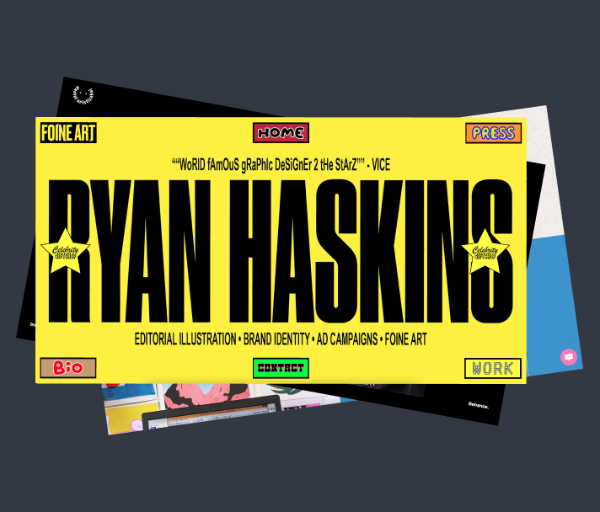Best Website Builder for Blogs Resources
Getting Started with Best Website Builder for Blogs
Best Website Builder for Blogs
In today’s digital age, having a strong online presence is essential for churches to effectively reach and engage with their congregation. A well-designed website can serve as a powerful tool for communicating important information, sharing resources and sermons, and connecting with members and visitors. However, creating a website from scratch can be a daunting task, especially for those without technical expertise. That’s where church website builders come in – these platforms offer easy-to-use tools and templates specifically tailored for churches, making it simple to create a professional and engaging website. In this article, we will explore some of the best church website builders available, and discuss their features and benefits.

How Best Website Builder for Blogs Works
Best Website Builder for Blogs
To ensure that your website meets accessibility standards, it is important to use a website accessibility checker. These tools help you identify areas on your website that may not be accessible to all users, allowing you to make the necessary changes to improve your site’s accessibility.
One popular website accessibility checker is the Web Content Accessibility Guidelines (WCAG) checker. WCAG is a set of guidelines for making web content more accessible to people with disabilities. These guidelines are broken down into four principles: perceivable, operable, understandable, and robust. The WCAG checker evaluates your website based on these principles and provides you with a list of issues that need to be addressed to improve accessibility.
Another website accessibility checker is Axe, which is a free open-source tool developed by Deque Systems. Axe scans your website for accessibility issues and provides detailed reports on areas that need improvement. The tool is easy to use and provides actionable recommendations for improving accessibility.
In addition to these tools, there are also browser extensions like Wave and AInspector that allow you to check the accessibility of your website in real-time as you browse. These extensions highlight accessibility issues on your site and provide recommendations for fixing them.
When using a website accessibility checker, it is important to keep in mind that no tool is perfect. While these tools can help identify common accessibility issues, it is also important to conduct manual testing to ensure that your website is truly accessible to all users. Manual testing involves using assistive technologies such as screen readers and keyboard navigation to navigate your site as a person with disabilities would.
It is also important to stay updated on the latest accessibility guidelines and best practices. The web accessibility landscape is constantly evolving, and it is important to stay informed about new developments in the field. By staying informed and regularly testing your website for accessibility, you can ensure that your site is accessible to all users.
In addition to ensuring compliance with accessibility laws and guidelines, improving website accessibility also benefits your business. By making your website more accessible, you can reach a wider audience and improve the user experience for all visitors. This can lead to increased engagement, higher conversion rates, and improved search engine rankings.
Importance of Web Hosting
Web hosting is essential for any website to be visible on the internet. Without web hosting, your website would not be accessible to users. When you sign up for a web hosting service, you are essentially renting server space where your website files are stored. The web hosting provider ensures that your website is available to users 24/7, and also provides technical support and maintenance services to keep your website running smoothly.
Another important aspect of web hosting is website speed and performance. The speed at which your website loads can have a significant impact on user experience and search engine rankings. A reliable web hosting provider will ensure that your website loads quickly and is accessible to users across the globe. In addition, web hosting providers offer security features such as SSL certificates and regular backups to protect your website from cyber threats and data loss.
Different Types of Web Hosting
There are several types of web hosting services available, each with its own set of features and benefits. The most common types of web hosting are:
1. Shared Hosting: Shared hosting is the most basic and affordable type of web hosting. In this setup, multiple websites share the same server resources, including storage space, bandwidth, and CPU power. Shared hosting is ideal for small businesses and individuals with low traffic websites.
2. VPS Hosting: VPS (Virtual Private Server) hosting is a step up from shared hosting. In VPS hosting, websites are hosted on virtual servers that mimic dedicated servers but share server resources with other websites. VPS hosting offers more control and customization options compared to shared hosting.
3. Dedicated Hosting: Dedicated hosting provides users with their own physical server. This type of hosting is ideal for websites with high traffic and resource-intensive applications. Dedicated hosting offers the highest level of performance and security but is also the most expensive option.
4. Cloud Hosting: Cloud hosting is a flexible and scalable hosting solution that utilizes cloud infrastructure to host websites. In cloud hosting, websites are hosted on a network of virtual servers that can be easily scaled up or down based on demand. Cloud hosting is a cost-effective option for websites with fluctuating traffic levels.
Factors to Consider When Choosing a Web Hosting Provider
When choosing a web hosting provider for your website, there are several factors to consider to ensure that you are getting the best service for your needs. Some of the key factors to consider include:
1. Reliability and Uptime: It is crucial to choose a web hosting provider with a proven track record of reliability and uptime. Look for providers that guarantee uptime of at least 99.9% and have robust infrastructure to prevent downtime.
2. Performance and Speed: Website speed and performance are critical for user experience and search engine rankings. Choose a web hosting provider that offers fast servers and optimized performance for your website.
3. Security Features: Security is a top priority for websites, especially those that handle sensitive information. Look for web hosting providers that offer SSL certificates, regular backups, and other security features to protect your website from cyber threats.
4. Customer Support: If you encounter technical issues or need assistance with your website, reliable customer support is essential. Choose a web hosting provider that offers 24/7 support via multiple channels such as phone, email, and live chat.
5. Pricing and Plans: Compare pricing and features across different web hosting providers to find a plan that fits your budget and needs. Consider factors such as storage space, bandwidth, and scalability when choosing a hosting plan.

Quick Best Website Builder for Blogs Guide
Best Website Builder for Blogs
In conclusion, AI web developers are a crucial part of the technological revolution that is transforming the field of web development. These professionals have a deep understanding of AI algorithms, machine learning, natural language processing, and other AI technologies that enable them to create websites that are smarter, more intuitive, and more user-friendly. By leveraging AI technologies, AI web developers are pushing the boundaries of what is possible in web development, creating websites that can think, learn, and adapt to user preferences. If you are looking to create innovative and dynamic websites that stand out in a crowded marketplace, consider working with an AI web developer who can help you harness the power of AI technologies to achieve your goals.


